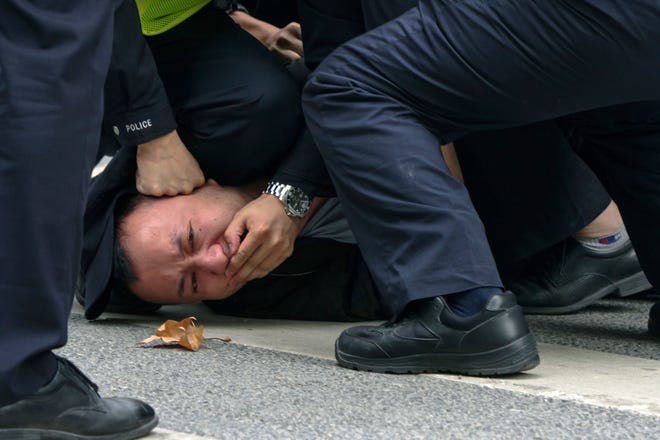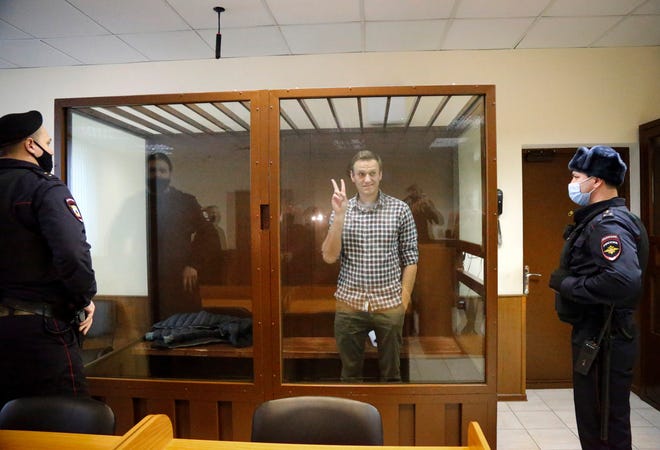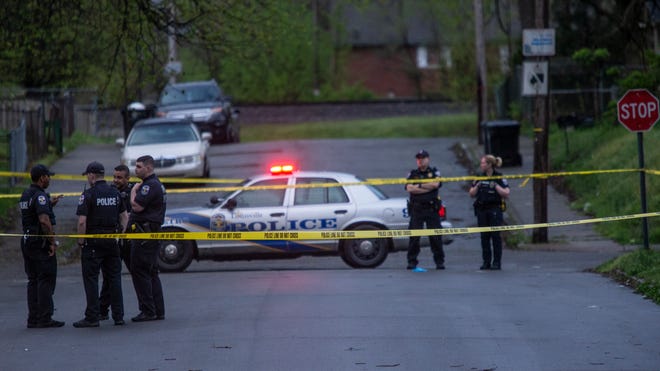
The Biden administration offered support Monday for peaceful protesters in China who spilled into the streets over the weekend to demonstrate against Beijing’s “zero COVID” strategy for containing the deadly pandemic.
Public anger and isolated protests over Chinese President Xi Jinping's COVID-19 policies have been building for months amid stories circulating online and in social media of cases when, because of citywide lockdowns, people have died for lack of medical care and pregnant women have miscarried babies. Shortages of food also have been highlighted.
When a fire broke out in a residential apartment building on Nov. 24 in the city of Urumqi, killing 10 people, local authorities denied that the deaths had anything to do with a severe 100-day lockdown in Urumqi. But many Chinese social media users blamed Beijing's pandemic policies, and demonstrations in Urumqi spread to cities across China including Beijing, Chengdu, Guangzhou, Shanghai and Wuhan.
At the White House, National Security Council spokesman John Kirby declared the administration's support for the protesters.
"Our message to peaceful protesters around the world is the same and consistent: People should be allowed the right to assemble and peacefully protest policies or laws or dictates that they take issue with," Kirby said.
Kirby stressed that lockdowns and a "zero COVID" are not policies the U.S. is pursuing.
The administration’s expressions of support for the protesters come as President Joe Biden is trying to ease tensions with Beijing and could complicate the dialogue between the two nations.
Biden and Xi met two weeks ago at the G-20 summit in Bali, Indonesia, where they discussed topics such as Taiwan, North Korea and the war in Ukraine. The two leaders agreed that senior aides would continue talks on climate change, debt relief and other issues.
But the protests and the U.S. support for the demonstrators could make things awkward.
"There has been no change in our desire to continue to see these channels of communication stay open," Kirby told reporters. "And we were heartened coming away from the G-20 that both leaders were able to agree on getting some of these working-level discussions back open.
"We want to continue to get those discussions back up in play. And as for whether or not there'll be an impact from the protests ... we're going to watch this and see where it goes."
Here's why protests spread and what they mean:
Why are the protests in China happening now?
Three years into the pandemic, China remains the only major economy pursuing a zero-COVID policy. While other nations have shed strict lockdowns, mass testing, social distancing, lengthy quarantines and travel restrictions, authorities in China have stuck with them, arguing they are the best way to contain the virus. Yet China's coronavirus case numbers, while small compared with what many countries experienced during the pandemic's peak, have been steadily rising.
Xi cemented his grip on power in October by claiming his third consecutive five-year term as leader of the country's ruling Communist Party. Since last week, China's most powerful leader since Chairman Mao Zedong has been experiencing a rare show of large-scale public dissent as protests erupt across the country over his government's strict COVID-19 policies.
This is what China did because it though it would beat coronavirus:Experts say America couldn't handle it

What types of actions are Chinese protesters taking?
Civil disobedience has included street protests, candlelight vigils and more active, violent demonstrations in which protesters have clashed with police. There have been chants calling for democracy and press freedom.
Some protesters have taken to holding up blank pieces of paper. That is a nod to a form of dissent seen during protests in Hong Kong in recent years as people took to the streets to rally against China's undermining of the city-state's judicial independence, democratic institutions and extradition laws.
The blank pieces of paper symbolize restrictions on political speech. They have also been used in Russia, where dissenting speech is also criminalized, and where some have sought to protest President Vladimir Putin's invasion of Ukraine.
'Chairman of everything':Xi to remain in power after being presented third term
How significant are these protests, and where could it all end up?
It is not uncommon for small protests to take place in China. But expressing political dissent or taking part in anti-government demonstrations on a larger scale is highly unusual in China, where authorities have all but obliterated independent media and civil society.
Andy Mok, a fellow at the Center for China and Globalization, a public policy think tank based in Beijing, said "that people across China are increasingly frustrated and stressed about the COVID situation is no surprise." However, he also pushed back against suggestions the protests represent a serious challenge to China's government.
"(This) is largely a Western media confection designed to give themselves a (self-congratulatory) sugar high," he said. "Public sentiment has always played a central role in the decisions of China's government."
Still, the fact that the protests appear to involve thousands of people is notable, experts say, as is the fact that there have been direct calls by social media users for Xi to step down. The demonstrations could be the largest declarations of discontent with China's government since 1989, when protests in Tiananmen Square led to a bloody crackdown by China's military that killed up to several thousand people.

China's police and security forces are well trained in suppressing rebellion and policing groups they consider a threat. Human rights groups believe China has detained more than 1 million Uyghur ethnic minorities in internment camps where they are subject to forced labor and other extreme repressions.
On Monday, authorities dispatched thousands of police across multiple cities to prevent further gatherings, a tactic that appears to have worked. Online censorship monitors such as GreatFire.org have reported widespread instances of bots and spam accounts attempting to drown out calls for further protests with ads for gambling and adult content.
"The Chinese government is extremely capable (of cracking down on dissent)," said a Chinese dissident artist who uses the online moniker "Bad ї ucao" in an interview, a pseudonym he adopted when he started making political art. He now lives in Australia. "When I first started making art I wouldn't do an interview like this," he said, because he feared harassment and intimidation from Chinese authorities overseas.
Discriminatory detention:UN cites China for 'serious human rights violations' in its treatment of Uyghur Muslims
China's 2022 Winter Olympics: Athletes forced to navigate snow, ice and human rights








